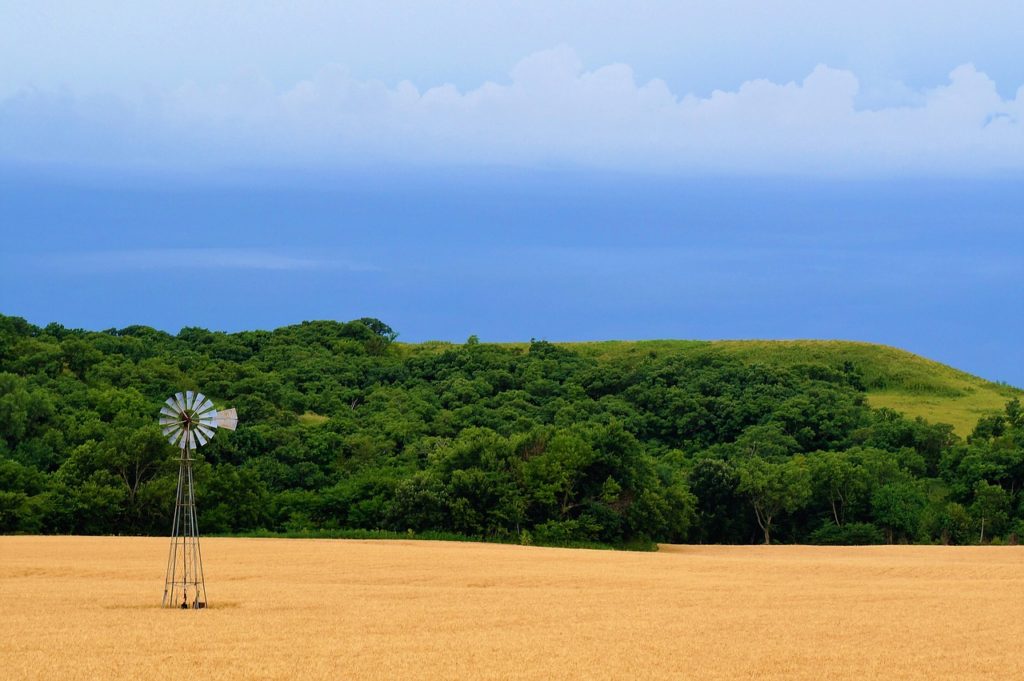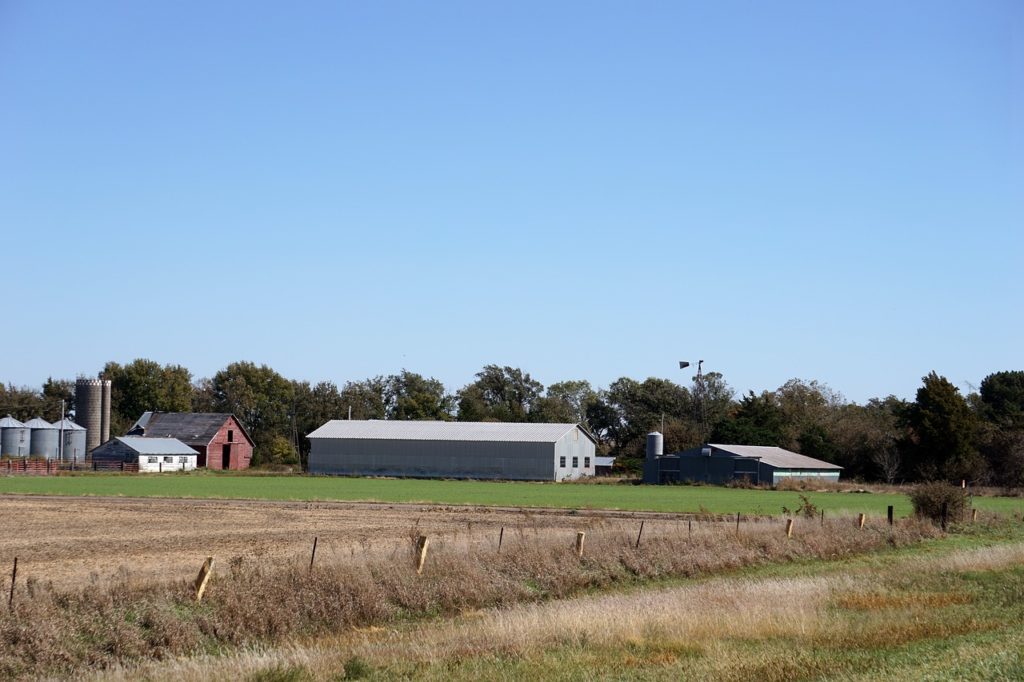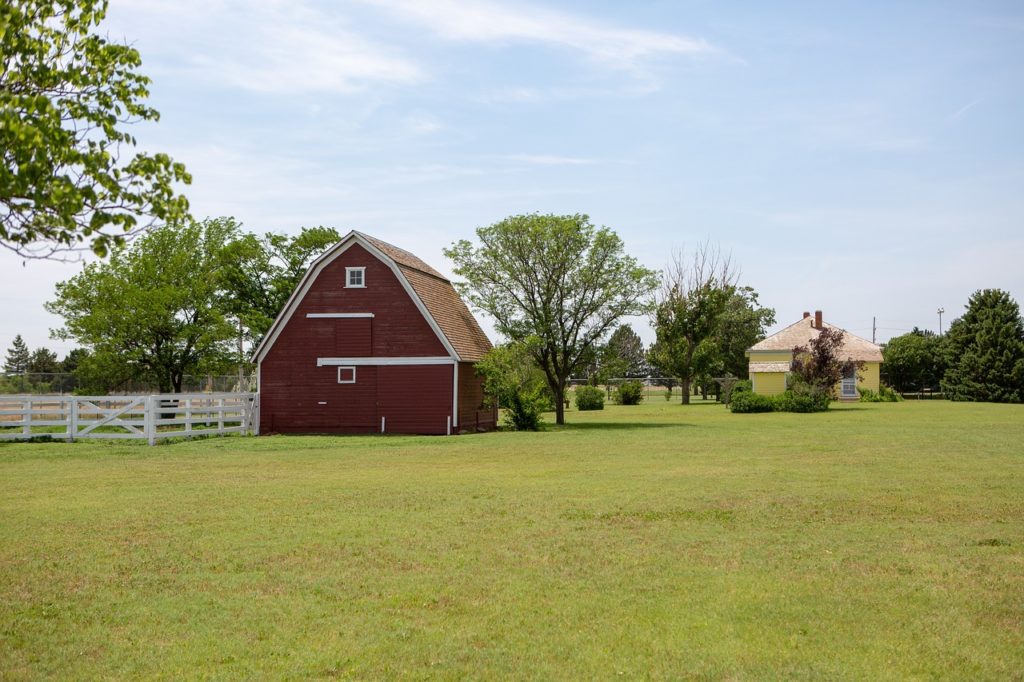How to start homesteading in Kansas
Kansas is one of the country’s leading agriculture states and is perhaps best known for its so-called amber waves of grain. Kansas state nickname is “The Wheat State,” and it is usually ranked number one in all wheat produced, wheat flour milled and wheat flour milling capacity.

Farming in Kansas goes beyond wheat, though. The state has many attributes that might be attractive to new farmers and homesteaders, from moderate growing conditions to plentiful livestock and financial opportunities for new farmers.
If you think the Wheat State has risen from the chaff, here’s how to start homesteading in Kansas.
Buying farmland in Kansas
According to 2019 data from the United States Department of Agriculture (USDA), the average cost of farm real estate in Kansas was $1,960 per acre, compared to the national average of $3,160 that same year. The average cost per acre for cropland was $2,160 and $1,390 for pasture.
According to the USDA’s 2018 State Agriculture Overview, Kansas has 45.8 million acres of farmland and 58,900 farms. The average farm size is 778 acres.
Working farms must register for and pay business taxes to the Kansas Department of Revenue Customer Service Center.
The Kansas Development Finance Authority has a Beginning Farmer Program, a tax-exempt bond program that assists new farmers in financing their agricultural businesses by making loans available at below-market interest rates through private lenders. The program can be used for purchasing agricultural land, farm buildings, farm equipment and breeding livestock. Beginning farmers may borrow up to $543,800, subject to lender approval.
Growing crops in Kansas
Wheat in Kansas accounts for about 12 percent of total agricultural production and provides about 15 percent of the nation’s total crop. Corn for grain is another valuable Kansas crop, contributing about 9 percent to the state’s total agricultural revenue, as well as soybeans, sorghum, grain and hay.

The USDA hardiness zones in Kansas range from 5b in the northernmost regions bordering Nebraska to 7a further south.
Because of the relatively moderate growing conditions, a wide variety of vegetables can be grown in Kansas. Beans, southern beans, beets, carrots, summer squash, peppers, tomatoes, lettuce, onions, radishes and turnips all grow well in the state.
In Kansas, anyone who wishes to use water for any purpose other than domestic use must file an application with the Kansas Division of Water Resources. After the water permit has been issued, the Division of Water Resources conducts a field inspection to determine such things as rates of diversion of water, where and how the water has been used, as well as other numerous details of the actual operation. The Kansas legislature has made the report of water use mandatory and authorized fines for late reporting. Deliberate falsification of data on a report is a class C misdemeanor. Reports must be submitted even if water was not used in the previous year, and the reason for non-use explained.
Kansas’s state soil, Harney silt loam, is the most extensive soil in the state, covering 3,976,000 acres in west-central Kansas. A variety of cash crops, irrigated and dryland, are raised on Harney silt loam.
Raising animals in Kansas
The highest agricultural revenue in Kansas is generated by raising cattle and calves, accounting for about 60 percent of the state’s total agricultural production. Hogs and dairy products are also important in the state, and some revenue is also generated by chicken eggs, sheep and lambs.
According to Kansas Fence Law, all domestic animals, other than cats and dogs, must be enclosed with a sufficient, lawful fence. Kansas does not enforce strict or absolute liability for damages for injury to any person or property resulting from domestic animal trespass.
All animals entering Kansas shall be accompanied by an official Certificate of Veterinary Inspection issued within 30 days prior to movement into Kansas unless moving to an approved slaughter facility or to an approved livestock market. Livestock coming into Kansas from a county with a vesicular stomatitis quarantine needs a permit number and a statement by the veterinarian on the Certificate of Veterinary Inspection.
All species imported to Kansas for breeding purposes or requiring testing should be individually identified by a method approved by the animal health commissioner, such as an official USDA ear tag, breed registration tattoo, microchip or registered ear notch. Additional requirements for different types of livestock can be found on the Kansas Department of Agriculture website.
There are several livestock auctions that take place throughout the state of Kansas, including the El Dorado Livestock Auction in El Dorado, the Farmers & Ranchers Livestock in Salina, the Fort Scott Livestock Market in Fort Scott, Manhattan Commission Co. in Manhattan, Pratt Livestock in Pratt, Winfield Livestock Auction in Winfield and Winter Livestock in Dodge City.
Selling food in Kansas
There are 59 farmers’ markets listed on the Kansas Farmers Market Directory website.
A food safety license is not required for growers who sell their fresh, uncut produce directly to the consumer, food processing plants or food establishments. A Food Processing Plant license is required if the operation aggregates produce from different producers or cuts or otherwise processes the produce.
The sale of non-potentially hazardous foods, which are foods that do not require temperature control for safety or specialized processing, is allowed at farmers markets and similar locations without a food establishment license. Non-potentially hazardous foods include baked goods, such as cookies, bread, cakes, cinnamon rolls and fruit pies. Other non-potentially hazardous foods include fresh fruits and vegetables, nuts and honey.
The Kansas Department of Agriculture (KDA) provides a checklist to guide producers through various resources and requirements for opening and operating a typical Kansas home kitchen used for retail food sales, sometimes called cottage food sales. In addition to license requirements by KDA, other Kansas agencies, as well as local or federal government agencies, may have regulatory requirements to follow.
The Kansas Egg Law requires a license for many types of egg sales, but a license may not be required for sales of ungraded eggs directly to the end consumer. There are two different flock size categories for this exemption: 50 or fewer hens and 51 to 250 hens.
Eggs from flocks of 51 to 250 hens must be cleaned, washed and prepackaged with a label with the producer’s name and address as well as a statement that the eggs are “Ungraded.” Cartons should not be reused unless all brand markings and other identification is obliterated and the carton is free of foreign materials. Eggs can only be sold directly to consumers and must be maintained at a temperature of 45 degrees Fahrenheit or below.
Eggs from a flock of 50 or fewer hens directly to the end consumer are exempt from all requirements. However, ungraded eggs in a used egg container where the markings have not been fully obliterated may be represented as graded, and representing eggs as graded may be in violation of Kansas Egg Law.
Kansas organizations for new farmers
- Cultivate KC
- Kansas Farmers Union (especially the Kansas Beginning Farmers Coalition)
- Kansas Rural Center
- Kansas Farm Bureau
- K-State Research and Extension

How difficult is it to start homesteading in Kansas?
Though Kansas does not have as many small family farms as other states, there are efforts being made to encourage new and beginning farmers to lay roots in the Wheat State. Kansas provides a moderate climate to grow a wide range of crops, as well as an excellent environment to raise a variety of livestock.
